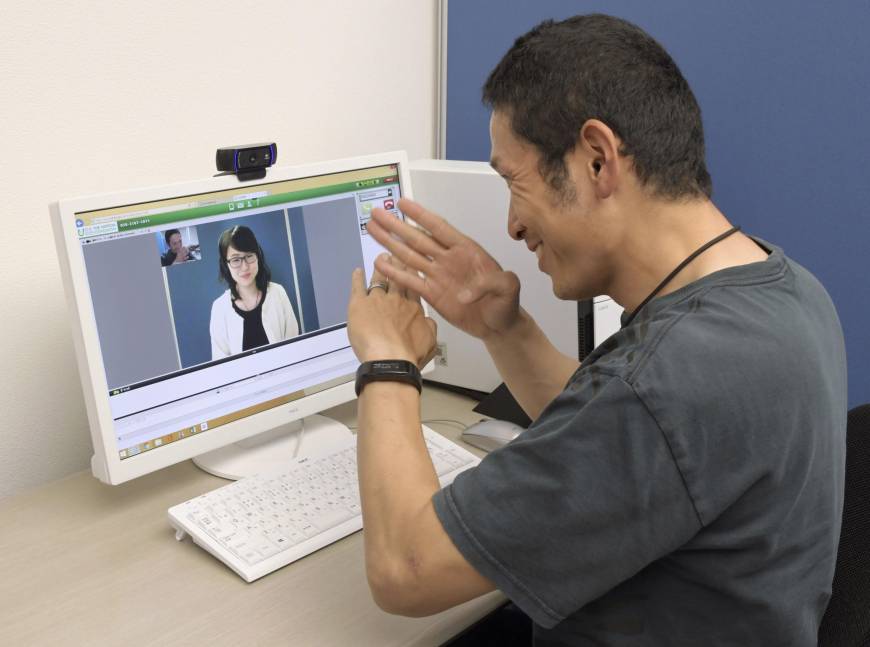Trivette v. TDOC
Summary
Deaf and hard of hearing inmates in Tennessee are not being treated fairly. They are not getting sign language interpreters and videophones. Disability Rights Tennessee and Civil Rights Education and Enforcement Center filed a complaint. In May 2021, the court gave preliminary injunction because Deaf inmates did not have equal access to prison phone use. This decision will help other deaf inmates in Tennessee.
Update 5.19.21
Kevin Trivette is Deaf and his primary language is American Sign Language (ASL). Like many people who are deaf, he understands English as a second language. While in the custody of the Tennessee Department of Correction (TDOC) Mr. Trivette was repeatedly denied crucial – and legally mandated – sign language communication for medical appointments, required classes, and religious services. TDOC also denied him a videophone, which he needed to communicate with his loved ones. Unfortunately, Mr. Trivette is not alone. TDOC routinely denies deaf and hard of hearing inmates qualified sign language interpreters and videophones. These unlawful and potentially harmful denials of effective communication to deaf and hard of hearing individuals who are incarcerated is a pattern of behavior at TDOC.
In March 2020, Disability Rights Tennessee (DRT) and Civil Rights Education and Enforcement Center (CREEC) filed a Complaint in the federal district court for the Middle District of Tennessee on behalf of Mr. Trivette and DRT, Trivette et al. v. TDOC. The suit was based on violations of the Americans with Disabilities Act (ADA) and Section 504 of the Rehabilitation Act (Section 504). The ADA and Section 504 require that state prisons provide inmates in their custody with equal access to programs and services, including providing sign language interpreters and videophones when needed for effective communication and equal access to phone privileges.
In November of 2020, DRT’s standing to file a lawsuit to protect the civil rights of individuals with disabilities in this case was granted. Read about this decision.
Then in May 2021, a Motion for Preliminary Injunction in the case Trivette v. TDOC was granted. Preliminary injunctions are temporary orders that prevent one side from suffering harm while a lawsuit is going on. In this case, the court found, in part, that Deaf, incarcerated plaintiffs are not receiving equal access to phone privileges because the prison does not provide them with a videophone (VP). As a result, they are suffering irreparable harm. Read the press release. Watch the press release in ASL.
The decisions states,
“Title II is not targeted at merely guaranteeing minimally adequate services to disabled people, but to remedying “unequal treatment of persons with disabilities by States and their political subdivisions”—that is to say, it addresses both “exclusion and discrimination.” Id. at 526, 531 (emphasis added). All parties here agree that, absent additional accommodations, Stinnett and Collins will be receiving inferior access to telecommunications due to their disabilities. In other words, they lack meaningful access to the telephone program, as it exists for the general inmate population.”
The decision goes on to say that,
“Serving a period of incarceration can be difficult in even the best conditions; being incarcerated while also being cut off from one’s family and friends, including one’s own children, introduces an additional level of isolation and suffering that cannot simply be remedied at the end of litigation with a monetary award. The evidence before the court, moreover, shows that, while communication with the assistance of a TTY machine may be better than no communication at all, it is not sufficiently equivalent to communication in ASL to eliminate the risk of irreparable harm.”
This Motion for Preliminary Injunction is a big step towards creating changes that will offer permanent shifts in the system for every Deaf inmate who enters or is in TDOC custody.

Relevant Links:
